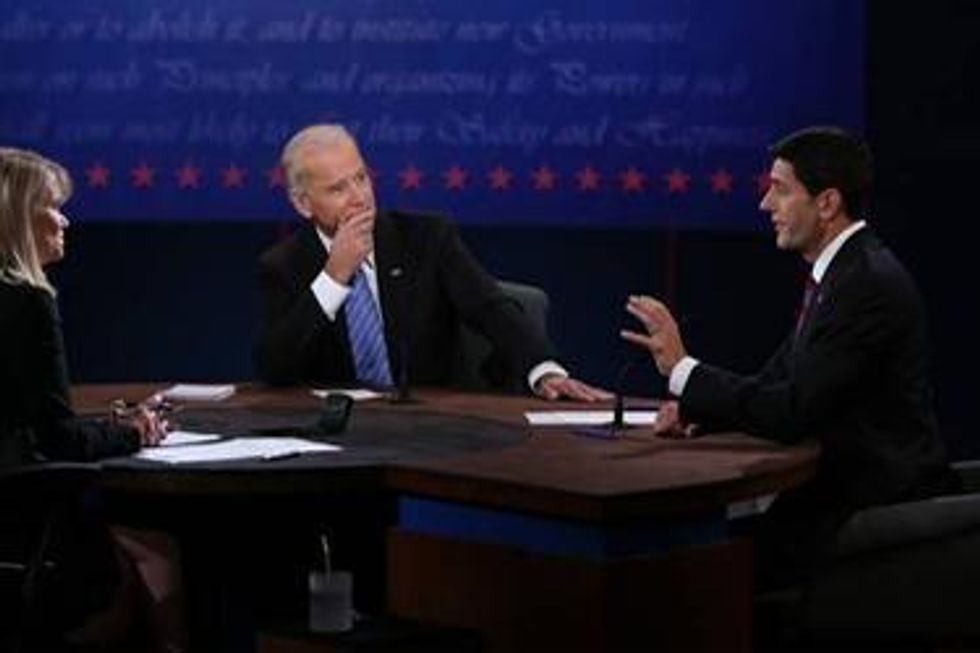Two debates into a four debate format, we have now seen all four members of the opposing campaigns debate the issues most important to the American voters. In that total 180 minutes of debate time, topics traditionally considered to be "women's issues" have been discussed for exactly six minutes.
That's 3.3 percent of the total discussion.
In less time than it takes to smoke a cigarette, in less time than the federal government mandates for bathroom breaks, in less time than it takes to listen to "Sympathy for the Devil" by the Rolling Stones, last night the Vice Presidential candidates paid lip-service to a woman's right to choose not just whether to carry an unwanted pregnancy to term, but even the right to prevent that pregnancy in the first place with easy access to affordable contraception. Her right to do so wasn't presented as a given -- even though legally and ethically both should be. Instead, it was couched as a question of morality under a religious framing, as if Catholicism, and not a woman's personal autonomy, should be the deciding factor of a woman's right to control her body.
"How does your faith shape your position on abortion?" should never be a question asked of political candidates. For one thing, a person's faith shouldn't be an issue that voters need to be wary of when it comes to choosing a candidate to support. What a person believe personally and what is legal, what is constitutional, and frankly, what is fair and just, is how a politician needs to promise to govern.
But even more so, it frames a woman's choices as something on which the church is allowed to be the final authority. In essence, the moderator is saying, "Will you let the leaders of your faith dictate what rights women have or will you buck your bishops and let women have the same right to control their bodies that men are allowed?"
As the recent polling showed, the vast majority of Catholics themselves aren't concerned with whether leaders follow the mandates passed down by the church. They use birth control. They want to chose when and if they will have children. Male and female, they conclusively want control over their families to belong to them, not a hierarchy of faith leaders. Yet when the time comes to talk about these issues, the question being asked isn't what women want, how they want to shape their own lives, or what science and evidence says, but whether the beliefs of the church should supersede that or not.
As women, we are watching our own rights erode daily at the hands of our politicians. Now, we appear to be watching our permission to even participate in the debate erode as well.

